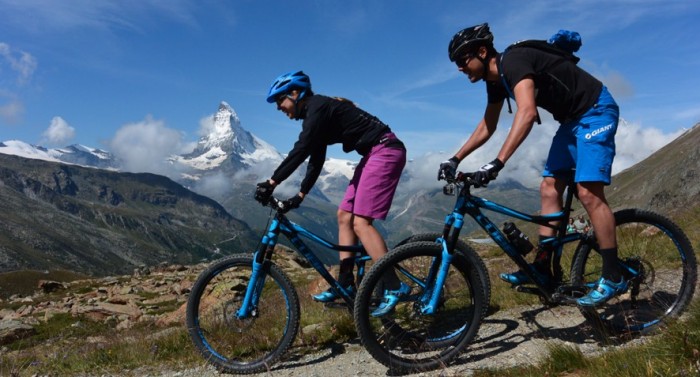Do you need data just to get you out of bed? Do you lose count of how many times a day you check Strava? Do you think about power, training load, and ramp rate more than most people would find ‘normal’?
If you answered yes to any of these, but need a bit more convincing, read on. Here’s a few signs you should switch off and leave the device at home once in a while:
1. The screen’s sucking you in
The real reason we ride is to get outdoors, to leave work, family worries, mortgages, bills, phone calls, emails, social media and all the rest of it behind. But there’s one screen that comes with us, and staring at it every few seconds keeps us in that ‘doing’ mode and out of the ‘being’ mode that comes when we abandon ourselves to the road or the trail, to the views, the pull of gravity up a hill and its release down the other side. We ride to feel the wind at our back and on our faces, the glow of the sun, the sting of rain. The screen drags you away from and back into the objective world of comparisons, numbers, achievements, pressures. If you’re riding inside your head and not out of it, think about switching off for a while.
2. It’s getting you down
Ever been on your way up a hill or getting into an effort, not feeling too bad, but looked down and seen the data wasn’t quite what it should be, then plummeted into a whirling personal hell where you’re never going to get any faster and there’s no point trying? The pain doubled, the despair worse?
Learning to ride on feel is an important part of managing your fatigue and your performance as well as a great way to know when to abandon an effort and when to push through. Although data like power might seem an honest reflection of what’s going on, there are so many variables that affect it that we probably shouldn’t trust it as much as we do. Retreating into feel occasionally is a good lesson in patience, and your rate of perceived exertion (RPE) can be as accurate or better for assessing how you’re going.
3. You’re losing productivity
Are you spending time off the bike endlessly calculating your ramp rate, your ATL, your CTL? Do you find yourself frequently visiting Strava, or reading forums, blogs, and books about the technical stuff? While it’s great to be informed, it’s not always helpful if you’re often distracted by mental calculations of power to weight or predicted VO2, or if the first thing you do when you get to the office is upload and analyse your ride for 45 minutes. Plus you don’t want to get caught.
4. You’re riding like an asshat
It happens to all of us now and then. We’ve got some numbers we want to hit, we’ve got a goal in mind, and that’s more important than accommodating the friend who’s joined us for a pedal, or the regular group we’re riding in. If your love of data is making you half-wheel your mate, or attack your Friday recovery bunch, or even pull out an effort on a single-lane bike path, it might be time to switch off for a while.
So, are the numbers far more important to you than the fundamentals of cycling? Has data superceded the joy of immersing yourself in nature, the social interaction, the elation of the summit? Our advice? Leave the device at home for a few days, or even a week. Let your perfect CTL graph go to shit and realise that the world doesn’t end when it does. Live every ride as it comes: look around you, feel the sting in the legs and the heat in your lungs instead of staring at numbers on a screen. Reset your mind and when you turn the GPS back on a week later, you might just find you don’t look at it that much. Remember, the best way to go fast is to enjoy yourself.

